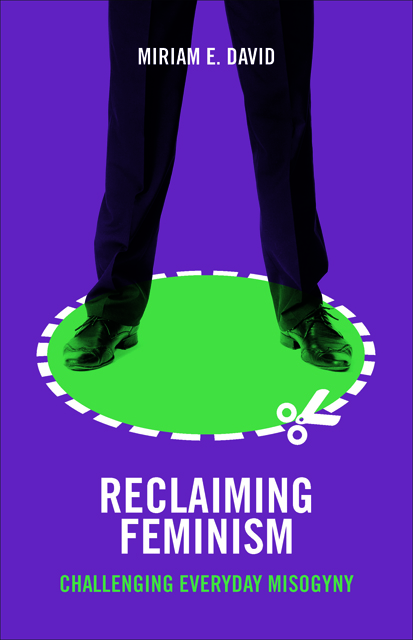Book contents
- Frontmatter
- Contents
- About the author
- Acknowledgements
- A note about the waves of feminism
- one Feminist reflections on a lifetime in academe
- two Changing feminism
- three Feminist pioneers
- four Gender and generations
- five Cultivating feminists
- six A feminist resurgence
- seven Feminists on campus
- eight Feminist fortunes
- References and select bibliography
- Index
six - A feminist resurgence
Published online by Cambridge University Press: 15 April 2023
- Frontmatter
- Contents
- About the author
- Acknowledgements
- A note about the waves of feminism
- one Feminist reflections on a lifetime in academe
- two Changing feminism
- three Feminist pioneers
- four Gender and generations
- five Cultivating feminists
- six A feminist resurgence
- seven Feminists on campus
- eight Feminist fortunes
- References and select bibliography
- Index
Summary
There has been a dramatic resurgence of politically engaged and public feminisms in the 21st century. The encroachment of capitalism into ever-increasing forms of digitisation, sexualisation and pornification of the culture has enabled both feminist and other, including misogynistic, critiques. The ‘selfie’ generation is a good way to typify the impact of this kind of competitive, individualistic and ‘academic capitalism’. The question is whether this is one new generation or several competing and contested approaches to the new public order of global neoliberalism. Is it similar to or different from previous generations? The very notion of resurgence implies the idea of an ocean or sea waves – it is as if a new wave is emerging during the early 21st century. Feminism is used online, in the media, politics and in HE. But what precisely does it mean to call oneself a ‘feminist’ today? Are there different tendencies, or Fifty shades, as Appignanesi and her colleagues (2013) put it?
It seems to me that feminism is everywhere and yet nowhere influential or powerful. It is everywhere in the sense that some politicians claim the term, such as, most recently, Justin Trudeau in his Canadian election victory (October 2015); yet it remains anathema for some. In October 2014 in the UK some politicians wore a t-shirt saying ‘This is what a feminist looks like’, including the Prime Minister David Cameron, in celebration of the Fawcett Society’s campaigns over 150 years. But I feel that this was merely window-dressing and not at all serious. So in some senses, it is still nowhere.
When I went to Brighton to give a public lecture entitled ‘Higher education: A feminist critique’, the young man who introduced me was very pleased that I claimed to be a ‘feminist academic activist’. This was in contrast to their previous speaker, in the lecture series on ‘What should universities be?’, namely, Lord David Willetts, the Conservative politician whose ideas I was contesting. The purpose of my lecture was the influence of different waves of feminism on HE in the past and present. When I was starting out, the term ‘feminism’ had been abhorred, and it took me some time to claim the term. I recall specifically why I did so, as mentioned in Chapter Three. And I claimed the term proudly as it was indeed an epiphany or an Eureka moment for me.
- Type
- Chapter
- Information
- Reclaiming FeminismChallenging Everyday Misogyny, pp. 143 - 172Publisher: Bristol University PressPrint publication year: 2016

